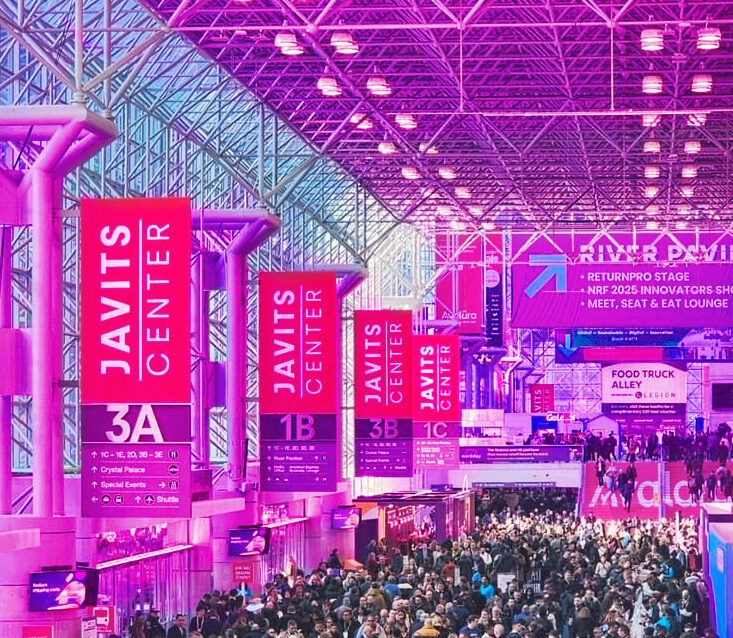By Mike Butler and Grant Hillary
The retail industry is undergoing a transformative era, fuelled by rapid technological advancements and evolving consumer demands. By 2025, AI-powered retail innovation will define the sector as businesses leverage cutting-edge tools to optimise operations, improve engagement, and deliver hyper-personalised experiences. Here’s a look at the most influential trends shaping the retail landscape, including OpenAI’s pioneering “Operator” platform.
1. OpenAI’s “Operator”: Revolutionising Customer Engagement
OpenAI’s “Operator” stands out as a groundbreaking solution in retail, offering an AI-driven, concierge-style experience that enhances customer interactions on a large scale. Moving beyond the capabilities of traditional chatbots, Operator can handle complex queries, recommend products tailored to customer needs, and address supply chain concerns.
The platform seamlessly integrates with both in-store and online experiences, empowering retailers to create fluid omnichannel journeys. For instance, Operator can guide a customer in locating a product in a nearby store, provide real-time stock updates, and suggest alternatives—all within a single interaction. By harnessing such innovative AI tools, retailers can build stronger customer relationships, streamline purchase processes, and significantly boost satisfaction.
2. Mainstream Adoption of Autonomous Retail
Cashier-less shopping and self-check out, once led by innovators like Amazon Go, has become an everyday reality. Using advanced technologies such as computer vision, AI, and the Internet of Things (IoT), these stores allow consumers to shop without the need for traditional checkouts.
The appeal lies in its convenience: customers simply pick up what they need and leave, while behind the scenes, technology ensures accurate inventory tracking and billing. Smaller retailers and boutique stores are also joining this trend, although balancing automation with personalisation will remain critical as this model expands.
3. Generative AI in Marketing and Design
Generative AI is transforming how retailers approach both marketing strategies and product creation and promotion. With these tools, businesses can produce bespoke email campaigns, digital ads, and product descriptions in record time. Additionally, AI’s ability to analyse trends enables brands to stay ahead of consumer desires.
By mining social media data, influencer content, and online searches, generative AI predicts emerging trends before they fully materialise, giving companies a competitive edge in designing products that resonate with their audience.
4. Sustainable Solutions Enhanced by Technology
Sustainability has shifted from being a competitive differentiator to an essential expectation. Retailers are increasingly using blockchain to bring transparency to supply chains, allowing consumers to trace the ethical and environmental impact of their purchases.
AI also plays a pivotal role in sustainability, optimising inventory management to minimise overproduction and waste. Predictive analytics enable brands to forecast demand with greater precision, fostering responsible consumption and building trust among environmentally conscious shoppers.
5. Urban Micro-Fulfilment for Rapid Delivery
As the demand for ultra-fast delivery grows, micro-fulfilment centres (MFCs) are becoming integral to retail strategies. These compact, tech-enabled warehouses are strategically located in urban areas, leveraging robotics and AI to streamline order fulfilment.
Retailers like Walmart and Target are already benefiting from reduced logistics costs and improved last-mile delivery speeds. MFCs ensure customers enjoy the convenience of same-day delivery while brands maintain efficient operations.
6. Predictive Analytics Driving Hyper-Personalisation
Personalisation has reached unprecedented levels in 2025, with predictive analytics enabling retailers to anticipate individual customer preferences with remarkable accuracy. Using vast datasets, brands can tailor promotions, product recommendations, and even in-store experiences to each shopper’s unique needs.
Technologies such as smart mirrors and augmented reality (AR) displays further enhance personalisation, providing customers with immersive, customised experiences that blur the lines between the physical and digital shopping worlds.
7. Growth of Circular Commerce
The rise of resale and rental models is reshaping retail, with technology providing the infrastructure to make these business models seamless. AI ensures authentication, pricing accuracy, and efficient inventory management, allowing retailers to participate in the growing circular economy.
Major brands like IKEA and Lululemon have already embraced these models, appealing to eco-conscious consumers while diversifying revenue streams and fostering brand loyalty.
Embracing Retail’s Future: Technology as the Foundation
In 2025, success in retail depends on seeing technology as the core of strategic operations rather than an optional enhancement. From AI-driven platforms like OpenAI’s Operator to innovations in sustainability, robotics, and generative AI, the possibilities for transformation are endless. However, the greatest impact will be achieved by blending technological advancements with a human-centric approach—ensuring that as the industry evolves, the focus remains on understanding and serving the customer.
Need a marketing agency? One that harnesses the power of AI for efficiency and results? And, most importantly, one driven by people who care about other people, the planet, and society?
At Humaine, we blend AI with human expertise to deliver smarter, faster, and more impactful outcomes—because the future of business isn’t just about profit; it’s about purpose.
Extraordinary Together.







